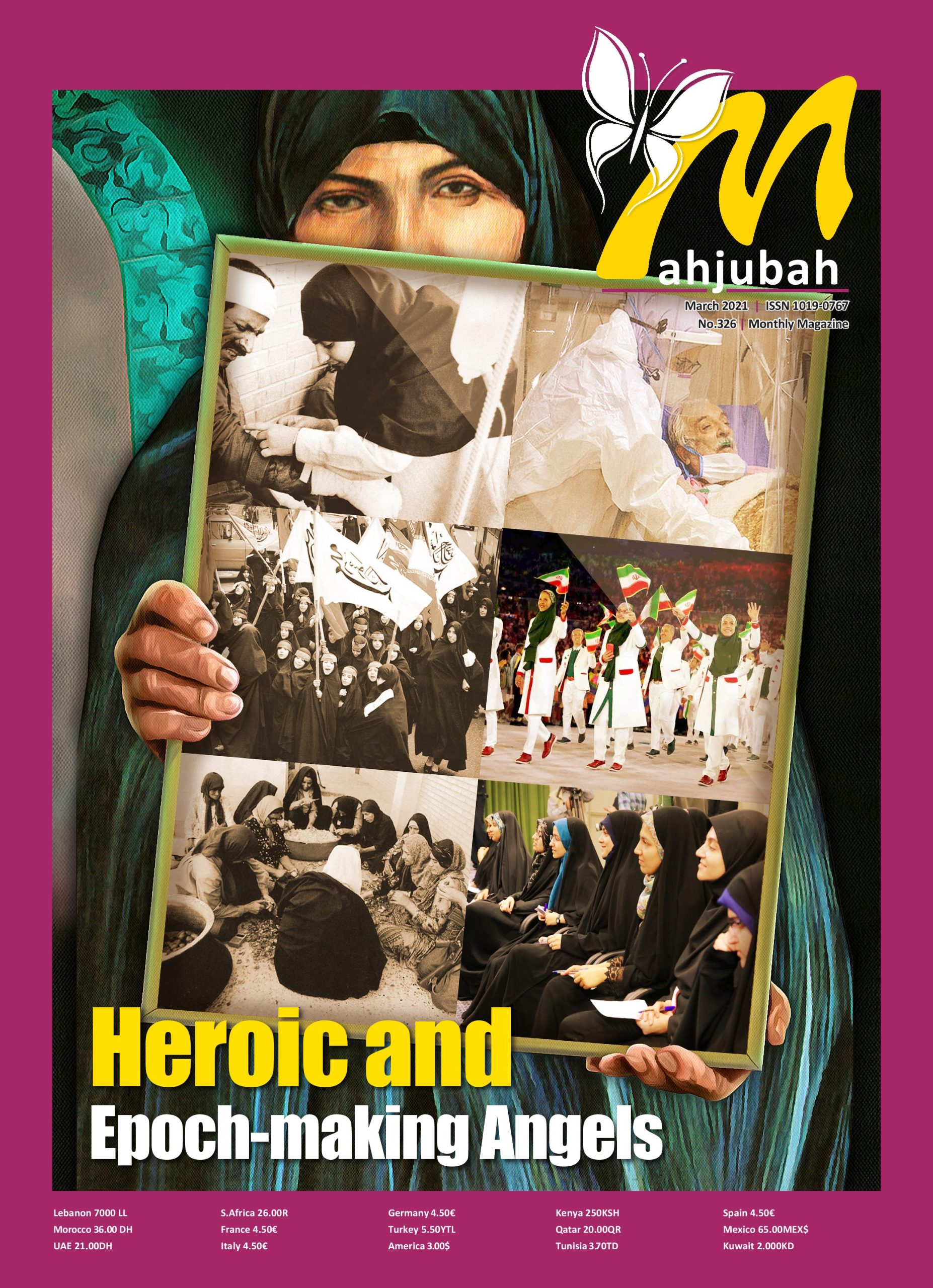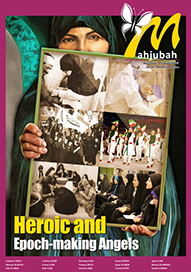Simultaneously with the holding of the National Congress of “Heroic and Epoch-Making Angels”, is being held by the Martyr Foundation and Veterans Affairs to commemorate and honour the 17000 martyrs, veterans, and free women of the country, Alhoda International, Cultural, Artistic and Publishing Institution with a synergistic and missional action and in line with the content and media coverage of this Congress in the international arena, has published a special cover letter about the spiritual and precious matters of this Congress.
The content of this magazine is devoted to the noble character of the epic women of Islamic Iran and an effort, though insignificant, has been made to introduce the unique position of the women of our Islamic homeland. We tried to take a small step in the direction of developing and promoting the culture of sacrifice and martyrdom.
The editorial written by the publication`s editor begins by asserting that Iran`s contemporary history has seen an active and inclusive presence of Iranian Muslim women in defensive, martial, political, and social fields. These are women who are willing to give up their feelings in exchange for their ideals and beliefs. They played a profound and valuable role in the Holy Defense era and created unforgettable epics by following the Ashura school.
“Imam Khomeini (RA) and the Supreme Leader`s Description of Women Martyrs and Female Warriors” is a collection of sayings by two great leaders of the Islamic Revolution describing martyred and veteran women who entered the arena of Jihad and martyrdom with zeal, humility, and only for the joy of God.
Sardar Yaqub Soleimani, Vice President of Culture for the Martyr Foundation and Veterans Affairs, also addressed this issue: At a time when Western countries are calling for modernism and talking about women`s rights seem to be disregarded in Muslim society, Iranian women have taken the example and learned from their innocent leaders, Lady Fatimah al-Zahra (AS) and Al-Sayyida Zaynab (AS). Iranian women not only refuted Western claims that women oppose revolutionary movements and Holy Defense but also substantiated the claim that there is no difference between men and women on concepts such as “freedom” and “heroism”.
The article on the life and biography of Bint al-Huda al-Sadr, the model of a hero Muslim women’s resistance against the despots and the system of domination and arrogance, deals with the parts of the noble character of this exemplary and altruist woman as the pioneer of the awakening of women in Islamic societies of the contemporary world. Hujjat al-Islam Sheikh Mohammad Reza Namani addresses some parts of this issue.
The interview with Parvin Salihi, Martyr Labafinejad`s wife and female warrior of the Pahlavi era, reviews a part of her life with her husband’s struggles before the victory of the Islamic Revolution.
The biographies of martyr Maryam Farhanian and veteran lady Ruqayyah Vakili are two other sections of the magazine recounting parts of the memories of these two devout and warrior women.
The article by Saham Azouz, a professor of international law at one of the universities in Lebanon, addresses the position and role of Muslim women in the training of Muslim mujahideen, as well as the ideological influence of Imam Khomeini (RA) and the Supreme Leader in strengthening the spiritual and jihadist spirit of free women in the contemporary world.
In addition, an ode written by one of the Tunisian female poets and writers, Mena Baazawi, about the status of female martyrs and veterans in this special congress, adorned the pages of this special issue.
The PDF file of this issue can be downloaded here:



